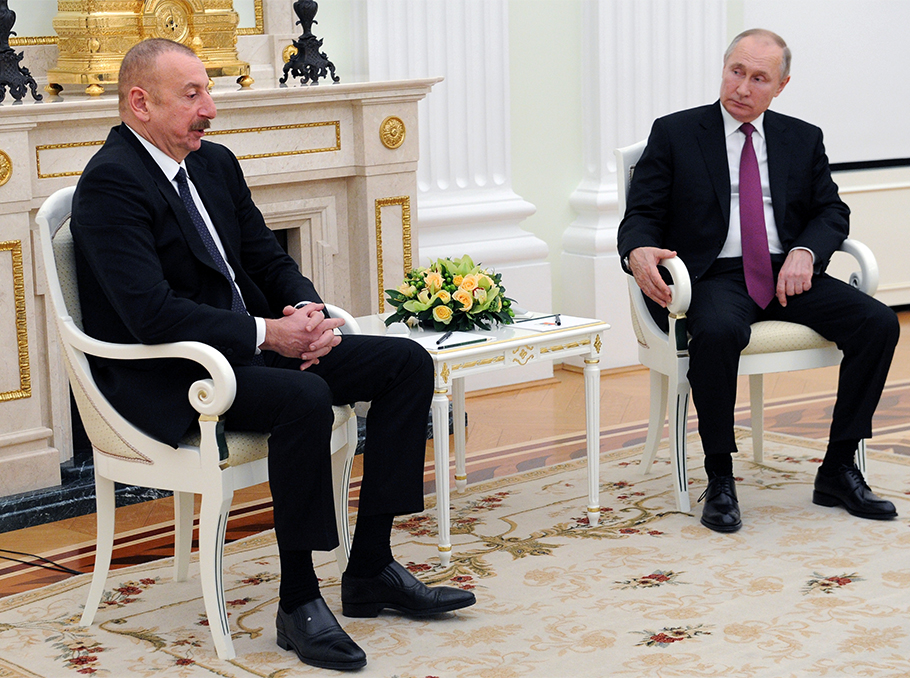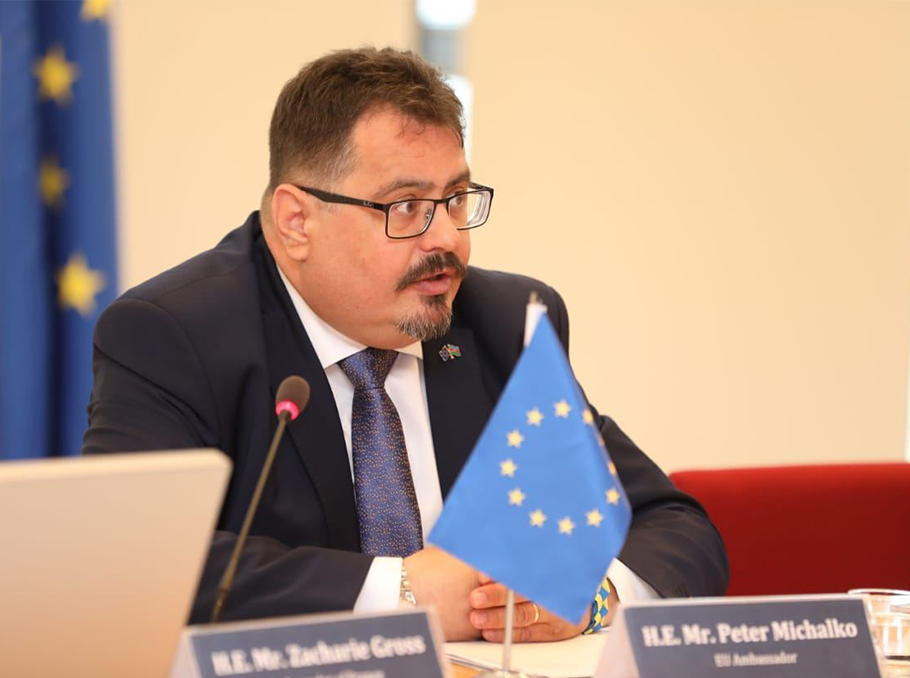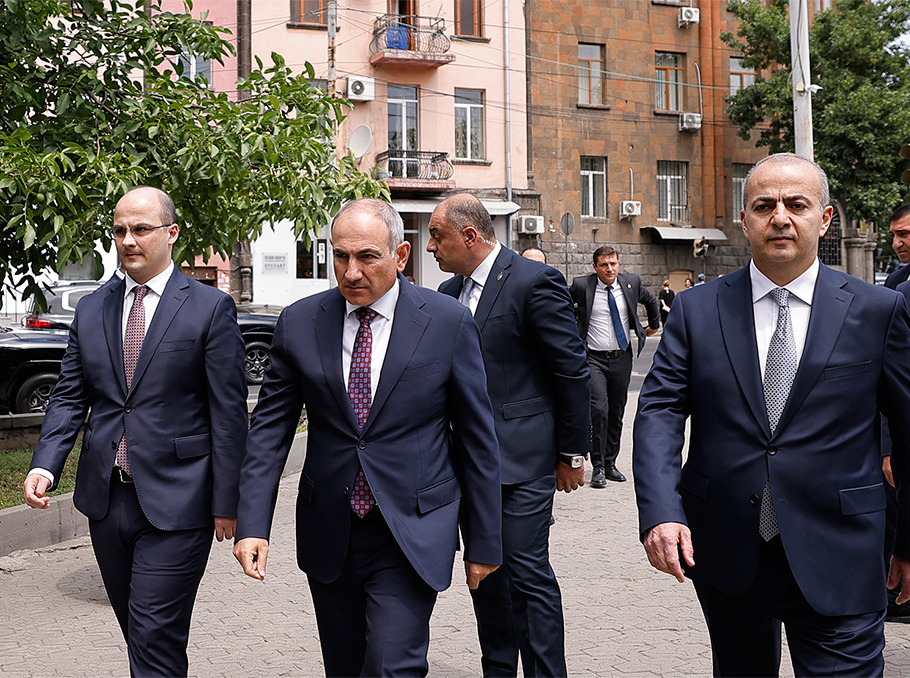September 30 marks International Translation Day. In 2017, the UN General Assembly unanimously adopted Resolution A/RES/71/288, recognizing and emphasizing the role of professional translation in connecting nations and fostering peace, understanding and development.
We discussed the profession of translation/interpretation, its intricacies, and the importance of quality translation/interpretation in communication with Anna Allahverdyan, a translator licensed by the RA Ministry of Justice who holds a Master's degree in Public Communication and serves as Advisor on Public Relations to the Executive Director of AraratBank.
She has worked with various international institutions and held the position of an interpreter-translator at AraratBank for 13 years. Her experience as an interpreter-translator has allowed her to provide deep insights into the intricacies of successful communication and highlight the significance of this profession.
How would you define the role of an interpreter in the 21st century? In your opinion, how crucial is an interpreter's work in this era of technology, where artificial intelligence is already capable of delivering translations?
In the 21st century, a translator serves as a cultural bridge not only between languages but also between ideas and worldviews. In our rapidly evolving world, one should never underestimate the opportunities offered by the digital age. Many professions transform over time to meet the demands of the period in which they exist. In my opinion, a career as a translator has always enjoyed great demand but also required extreme responsibility, not least because it often merges with other professions. Although the influence of digital technology is evident in this field as well, it cannot undergo a fundamental transformation for one simple reason – the human factor remains a priority.
The role of a translator/interpreter in this era of technology is becoming even more crucial, as the sense of cultural intricacies, contextual understanding, and creative approach still remain irreplaceable and often beyond the scope of machine translation. Despite the progress of artificial intelligence, human translators/interpreters continue to play a pivotal role in situations involving complex communication. Naturally, translators can avail of the opportunities provided by technology, but this needs to be done adequately and competently. Professionalism is crucial. Each term must be used in its proper place. Imagine a mosaic where each piece is unique, matchless, and in the right place.
No matter how much artificial intelligence develops, it still cannot grasp the subtleties of human communication. It lacks the innate ability to sense context, read facial expressions, emotional nuances, and body language, which are essential components of human relationships and communication.
How challenging is it to maintain resilience while interpreting?
Undoubtedly, simultaneous interpretation is one of the most demanding and stressful career choices. Maintaining composure while interpreting for officials is indeed a significant challenge. The high tension, time constraints, and fear of making mistakes can affect even seasoned interpreters. A minor moment of confusion can truly jeopardize a reputation built over years of dedicated work. Maintaining stress requires consistent effort and experience: in-depth knowledge of the subject matter, constant practice, psychological preparedness, mastery of breathing exercises, and the ability to recover quickly.
Despite the difficulties, it is precisely this challenge that fascinates interpreters and makes them seek this work.
Could you elaborate on the importance of interpretation in facilitating effective communication?
In the context of events and official meetings, simultaneous and consecutive interpretation play an extremely important, and often decisive role. The success of these events largely depends on accurate interpretation, as it ensures effective communication between participants.
An event or official meeting is not merely about attractive packaging. While external organizational issues remain important, it is the accurate transmission of content that ultimately delivers real value and success. Quality interpretation guarantees that participants correctly perceive and comprehend the topics discussed, ideas proposed, and decisions made.
Precise interpretation helps avoid misunderstandings that may arise due to language differences and ensures that all parties are equally involved in discussions. Therefore, in the context of events and official meetings, quality interpretation is not just a desirable supplementary factor, but a necessity for effective communication, mutual understanding, and ultimately, the success of the event.
Could the quality of translation/interpretation affect the reputation of a business and customer trust?
Yes, absolutely. The quality of translation/interpretation directly impacts the reputation of a business and the trust of customers, investors, and international financial institutions. High-quality translation/interpretation demonstrates a company's professionalism and contributes to partnership growth with international organizations.
Poor-quality translation/interpretation may damage a company's reputation, lead to the loss of customers, and even legal issues. It could come across as a sign of negligence or a disrespectful attitude.
Therefore, investing in quality translation/interpretation not only improves communication but also bolsters the company's position in the international market, increasing trust and loyalty among partner international institutions and customers.
Let's talk about the possible consequences and risks of translation/interpretation errors in the banking sector, as well as the importance of accurate translation of professional terminology in the financial field.
Translation/interpretation errors in the banking sector could end up having serious consequences. First, inaccurate translation of financial terms or contracts can lead to significant financial losses for both the bank and its customers. For example, misinterpretation of interest rates or payment terms can result in unexpected liabilities. Many people think that knowing only terms like 'loan,' 'deposit,' 'assets and liabilities' is enough to provide translation services in the banking sector, whereas in fact deep knowledge is required of terminology for various financial operations, accounting, audit, law, and IT security, to name but a few topics. Accurate translation of professional terminology in finance is of crucial importance. It ensures clear communication and reduces the risk of misunderstandings, which may lead to serious financial and legal consequences.
The management of AraratBank has always highlighted the crucial role of translators/interpreters within the organization, given its extensive network of partner IFIs and, consequently, the large number of documents requiring translation. Accurate translation is not just something desirable; it is a necessary condition for effective operations in all areas. Serious legal risks may arise from inaccurate translation of documents, which could even lead to lawsuits. However, at AraratBank, translation is carried out in collaboration with various departments, which means the process is reviewed at several levels. In the case of interpretation, we have always procured the services of qualified simultaneous/consecutive interpreters both for annual meetings and other events. Among recent events, I would highlight the UN Global Compact event, where AraratBank was the first company from the financial sector. The event was attended by representatives from the UN and public sector, Yerevan-based and foreign offices of international financial institutions, and local and international companies that are members of the UN Women Empowerment Programme. Interpretation at the event was entrusted to professional interpreters from the Armenian Conference Interpreters Association.
Equally impressive was the Robust Armenia 2024 Conference organized by Mediamax, where AraratBank was a partner. Interpretation there was once again entrusted to the Association members, interpreters Khachatur Adumyan and Artashes Emin. As a result, you feel confident that your message is being conveyed accurately. By the way, we should seek to instill a culture of explicit gratitude to interpreters. They perform an enormous task. After all, we must bear in mind that any information communicated at an event without qualified interpreters would have zero value, and consequently, the event would be considered a failure.
Do you see a need for translators specialized in finance and banking for work in those specific sectors?
There is a significant need for specialized translators in the finance and banking sector. Translation in this complex and technical field requires in-depth knowledge of financial instruments, banking operations, and regulatory norms. Financial and banking translators ensure accurate communication in international transactions, financial reports, and banking documents. They can correctly translate complex financial terminology, understanding its context and significance and thus reducing the risk of errors and misunderstandings. They also help maintain compliance with regulatory requirements and international standards. Therefore, the presence of financial and banking translators is an imperative requirement for effective operation in the modern global financial system.
I am pleased to note that the banking sector recognizes the importance of quality translators. Most commercial banks in Armenia have in-house translators but often additionally seek professional interpretation services during events.
How is the quality control carried out for both written and oral translation, and is there a professional body to test and certify translators?
Every year, the Ministry of Justice of the Republic of Armenia conducts a certification process for written translators in Armenia. The quality of written translation is mainly controlled by the clients receiving these services or by internal standards of translation agencies.
In the case of interpretation, quality control is more complex and is often carried out through client feedback but, regrettably, this does not always work. And although some universities offer translation education and award diplomas, there is still no body or office specifically established to certify interpreters.
It is noteworthy that translation and interpretation are two distinct professional fields that require different skills and approaches. These two forms should never be confused or equated. Translation allows the specialist to delve into the original text, affording time for reflection and analysis. Translators can review their work multiple times, use different sources, clarify terminology, and refine the final result.
An interpreter must have the ability to think and react quickly, possess a broad worldview, and have a rich store of knowledge. Their mind should be flexible and analytical, able to navigate through various situations and topics, capable of instantly perceiving and conveying not only the content of the speech but also its nuances, emotional coloring, and cultural peculiarities.
It is for this reason that the certification of interpreters has become a pressing issue and an imperative need today. This is not only about linguistic knowledge but also about a range of other qualities necessary to fulfill the mission of conveying speech accurately and effectively. This certification should be carried out by an appropriate professional body capable of assessing the multifaceted skills an interpreter should possess. Finally, it should be noted that it is interpreters themselves who best understand and appreciate the professional qualities of their colleagues. An experienced interpreter can immediately appreciate a colleague's mastery, sense of language, and professional ethics. Therefore, the best judge of their professional quality is often another high-class interpreter. Hence, the certifying body should consist of top-tier interpreters.
September 30 marks International Translation Day, which is also your day. What would you wish the best-ever professionals in this field who respect their work and consider it their way of life?
Only a translator knows the true value of translation: it's not measured solely in material terms. For a translator, the real value lies in a precisely and aptly used word. Translation is a unique art that is not given to everyone. I sincerely congratulate all translators dedicated to this profession who have made their calling a way of life. May your mind remain sharp and flexible, and your work appreciated. It is through your efforts that the world becomes more understandable and better integrated.
Interviewed by Hovhannes Vardanyan




























Comments
Dear visitors, You can place your opinion on the material using your Facebook account. Please, be polite and follow our simple rules: you are not allowed to make off - topic comments, place advertisements, use abusive and filthy language. The editorial staff reserves the right to moderate and delete comments in case of breach of the rules.